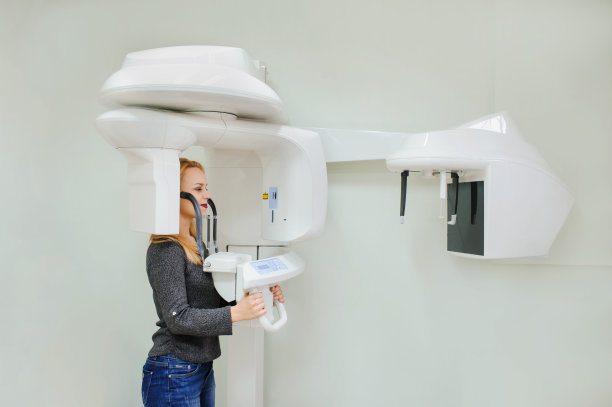Summary: Extracting a tooth, while often viewed as a last resort, can actually play a crucial role in promoting long-term oral health and overall well-being. This article explores the importance of tooth extraction in various contexts, emphasizing its necessity for preventing further dental issues, improving overall oral hygiene, addressing crowding in the mouth, and facilitating orthodontic treatments. Tooth extraction can not only relieve pain and prevent infections but also pave the way for enhanced oral functions and aesthetics. By examining these aspects in detail, readers will understand how sometimes, removing a problematic tooth is an essential step toward achieving better health in their mouths and beyond.
1. Preventing Further Dental Issues

One of the most significant reasons for tooth extraction is the prevention of further dental issues. When a tooth becomes severely decayed or infected, it can lead to the spread of bacteria to surrounding teeth and gums, causing infections and periodontal disease. By extracting the problematic tooth, individuals can mitigate the risk of these contagious conditions, safeguarding their overall dental health.
Additionally, leaving a decayed or damaged tooth untreated can lead to the formation of abscesses, painful pockets of infection that can severely affect not only oral health but overall health as well. This scenario underscores the importance of removing problematic teeth, allowing for the healing of adjacent tissues that may be compromised.
Moreover, tooth extractions help avoid complications that arise from prolonged neglect. Delaying extraction often results in more complex conditions that require extensive treatments, increasing both financial and physical burdens on patients.
2. Improving Oral Hygiene Practices
Tooth extraction can significantly enhance an individuals ability to maintain good oral hygiene. When teeth are overcrowded or misaligned, it becomes challenging to brush and floss effectively, leading to plaque buildup and increased risk of cavities and gum disease. Removing these teeth creates more space, allowing individuals to clean their remaining teeth thoroughly.
In cases where wisdom teeth are present, their removal often alleviates hygiene concerns related to difficulty in accessing the back of the mouth. By extracting wisdom teeth that can cause impaction or become improperly positioned, patients can improve their oral care routine and reduce their susceptibility to oral diseases.
Furthermore, improved oral hygiene leads to fresher breath and healthier gums, creating a ripple effect on overall wellness. A clean mouth contributes to better digestion, enhances confidence through a brighter smile, and even boosts mental well-being.
3. Addressing Crowding and Misalignment
Crowding and misalignment of teeth can cause various problems, both functional and aesthetic. When teeth are overcrowded, they can become trapped in difficult-to-clean positions, increasing the likelihood of decay and diminishing overall dental health. Tooth extractions may be necessary to create space, ensuring the remaining teeth can align properly and function effectively.
For orthodontic treatments, such as braces, extractions can be crucial. Orthodontists often recommend the removal of certain teeth to pave the way for tooth movement, resulting in a straighter smile. By addressing crowding through extraction, the results of orthodontic treatment can be more predictable and stable over the long term.
Additionally, patients who undergo successful orthodontic treatments often experience an increase in self-esteem and social confidence. A well-aligned smile not only improves physical appearance but also reinforces a positive self-image, positively impacting personal and professional relationships.
4. Facilitating Orthodontic and Dental Treatments
Tooth extraction is sometimes the precursor for more significant dental procedures that can improve oral health. For example, individuals who may need dentures or dental implants often require the removal of remaining teeth to ensure optimal fitting and functionality of their new prosthetics.
Moreover, in certain cases where teeth are severely damaged or misaligned, extraction becomes a necessary step in preparing for procedures such as root canal therapy or further restorative work. By removing the underlying problems, dentists can execute treatments that save or replace teeth, contributing to better long-term health outcomes.
Finally, facilitating future dental treatments through tooth extraction underscores the idea that a proactive approach to dental care is often the best route. By addressing issues promptly, patients can avoid complex treatments later on, preserving not just their oral health but also their overall well-being.
Summary:
In conclusion, the significance of tooth extraction in maintaining long-term oral health cannot be overstated. By preventing further dental issues, enhancing oral hygiene, addressing crowding, and facilitating advanced treatments, tooth extraction emerges as a critical tool in comprehensive dental care. Embracing this aspect of dental health enables individuals to enjoy better oral function and a brighter, healthier smile.
This article is compiled by Vickong Dental and the content is for reference only.
Vickong Dental
Vickong Dental is a large medical group established in Hong Kong in 2008 by professors from well-known medical universities in Guangdong and Hong Kong, as well as medical doctors from key national '985' universities (including Master's supervisors and senior professors). The chain of branches brings together expert dentists with PhDs and Master's degrees from Hong Kong and Mainland China, committed to providing high-quality dental treatment.
"Vickong Dental Practices the University Motto of 'Healing and Serving Society,' with a Stable Operation for Sixteen Years. It Has Been honored with Hong Kong Enterprise Leaders's Choice,' and is a Global Trusted Implant Center for the Nobel Implant System. Recommended by Hong Kong Metro Broadcast and Guangdong Television, it Serves Customers from Over Thirty Countries and Regions, Gaining the Trust and Favor of Citizens from the Guangdong-Hong Kong-Macau Greater Bay Area and Surrounding Cities.

Thousands of customers' unanimous praise
The most recognized and highly recommended dental service by customers in the Guangdong-Hong Kong-Macau Greater Bay Area
We Ensure You Receive Detailed Care and Attention Here
Hong Kong standards, Shenzhen prices, Your Trusted English-speaking dentists

Vickong Dental Medical-Grade Instrument Disinfection Process
Vickong Dental Medical-Grade Instrument Disinfection Process

Vickong Dental Chain: A Warm and Comfortable Environment for Treatment






Appointment Hours

Q&A
Why choose Vickong Dental?
Vickong Dental practices the university motto 「Medicine to Benefit Society」, with each branch bringing together highly qualified dentists with doctoral and master’s degrees from Hong Kong and the Mainland, and has maintained seventeen years of steady operation。Recipient of 「2024 Hong Kong Enterprise Leaders Brand」, 「2025 Hong Kong Enterprise Leaders Brand」, a Nobel Biocare Global Trusted Implant Center, and a brand recommended by Metro Radio Hong Kong and Guangdong TV。
To date, we have served customers from more than thirty countries and regions,earning exceptionally high word-of-mouth recognition and trusted recommendations from residents across the Guangdong-Hong Kong-Macao Greater Bay Area and surrounding cities
We have eight major branches in Zhuhai、Shenzhen,and a consultation and service assurance center in Hong Kong,so you can book a free consultation at any time for any questions,which is very reassuring.
If I do not accept the quotation after the CT scan, will I be charged??
No! As long as the actual treatment has not started, you will not be charged any fees.
Will there be any additional charges during the treatment process?
No, there won’t be any additional charges. Before treatment begins, we will clearly explain the treatment plan and its corresponding fees. Only after the patient agrees and signs the consent form will we proceed with the dental service.
Can I pay in Hong Kong dollars?
Yes. Vickong Dental accepts payment in Hong Kong dollars. The amount will be converted based on the exchange rate of the day, and the applicable rate will be clearly communicated to you in advance.
Can I reschedule my appointment at any time?
Yes. Please contact us via **WeChat** or **WhatsApp** as early as possible, providing your original appointment time and details, along with your preferred new date and time slot for rescheduling.













